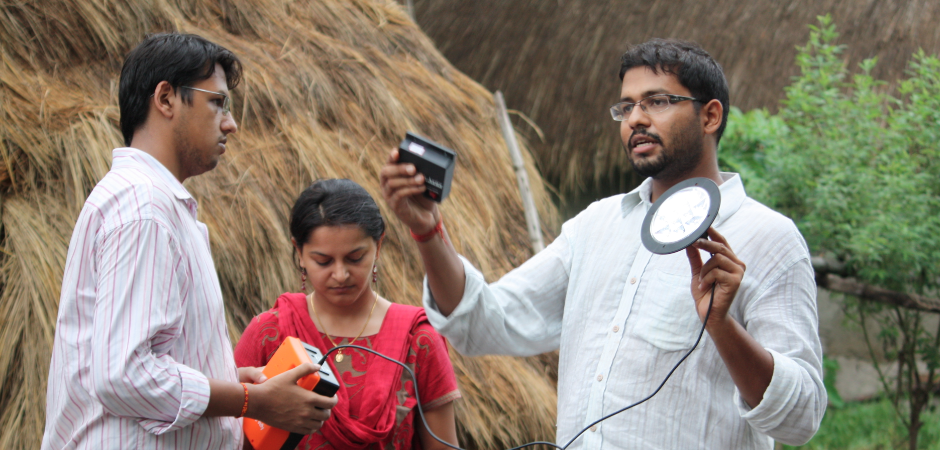Recently, impact investing in India has been taking center stage in the news. For example, Omidyar Network recently awarded $800,000 in grant funding to six organisations providing a spectrum of services that support social entrepreneurs, Unilazer investments also recently announced that as a fund they would continue to aim for profit first while expanding in the social impact space and reports have surfaced regarding plans to set up a regulatory body for impact investors in India. Furthermore, new social impact funds are frequently emerging.
Given the recent focus on impact investing in India, Ennovent connected with Karan Gupta, India Investment Manager for Insitor Management and an Ennovent Circle member to glean some insights on the industry’s evolution. Based on the conversation, the below three impact investing trends are worth noting:
1. A focus on scale must be approached cautiously
The emergence of impact investing was focused on identifying commercially and socially viable models filling a real market gap – with the potential to reach large numbers. This clearly contrasts the intent of philanthropic funds, which are often focused on making industries work that otherwise may not such as free schools for children or free food for low-income slum dwellers.
What has resulted for impact investing is therefore a strong focus on scale. Even though investors are prepared to be patient with their capital, funds continue to stress on the ability of the enterprise to scale aggressively – be it through increasing operations, taking on debt financing or expanding distribution.
While scale is important to achieve both financial and social aims, balancing purpose and profit becomes increasingly challenging with a strong focus on scale. Impact investors must ensure that the intent of their funds is clear – supporting their portfolio organizations to scale in a timely, efficient and thoughtful manner.
2. Accelerators lead to more investment ready enterprises
While the number of enterprises addressing social issues – from affordable education to accessible female sanitation and beyond – has grown considerably in the last few years, the quality of potential deal-flow has also dramatically improved.
Attribution for this shift to additional ‘investment ready’ enterprises can primarily be attributed to the increased accelerators and incubators, such as the Centre for Innovation, Incubation & Entrepreneurship, Villgro, Ennovent and others. These organisations have aptly realized that providing funds is simply not enough – instead they offer a variety of services to help entrepreneurs best develop their business models, then linking to appropriate funding sources.
For example, India has seen a dramatic increase in the number of training workshops that are being offered – from weekly webinars by the National Entrepreneurship Network to the UnconventionL by Villgro and one-on-one mentorship workshops by Ennovent. One-off trainings, coupled with increased access to mentors through incubation facilities or customised mentor engagements, enable entrepreneurs to gain the hands-on experience required to build models ready to absorb and effectively manage investor dollars.
3. Investors must also act as advisors
Interestingly, in India socially focused ventures are attracting large numbers of young entrepreneurs. While their urge to become entrepreneurs, fill a market gap or address a social issue is admirable, most entrepreneurs in the Indian market are only 25 – 28 years old with few years of management experience.
Therefore, once funded these entrepreneurs at many times lack the sector or area expertise required to maximize investor value and grow operations.
To mitigate this challenge, investors must take on a significant advisory role. Especially for socially focused businesses where a precedent model is often non-existent, investors must collaborate with the entrepreneur to support the long-term viability of the business. For example, Insitor, Mr. Gupta’s organization, isn’t averse to holding monthly board meetings with their portfolio companies to provide strategic guidance from a technical or marketing perspective.
Investors also need to act as advisors because the markets for many socially focused ventures are still evolving. For example, constant innovation is required such as this water ATM by Sarvajal or the Toyola moneybox as organisations re-learn the behavioural systems of their customers and adapt their business models to suit new markets. Couple this continuous need for experimentation with the relative practical inexperience of the entrepreneur and it becomes clear that to drive the investor dollar further the investor must wear this dual hat.
______
As the Indian impact investment industry continues to evolve these trends will affect not only how investors and entrepreneurs collaborate with each other but also the quality of novel ideas that are brought to these emerging markets. Recognizing this, Ennovent provides a spectrum of Startup and Scale services – from customised mentor engagements to expert consultations for entrepreneurs and investors alike. Learn more about these services now.
- Impact Investing in India – three trends worth noting - July 19, 2013


No Comments Yet